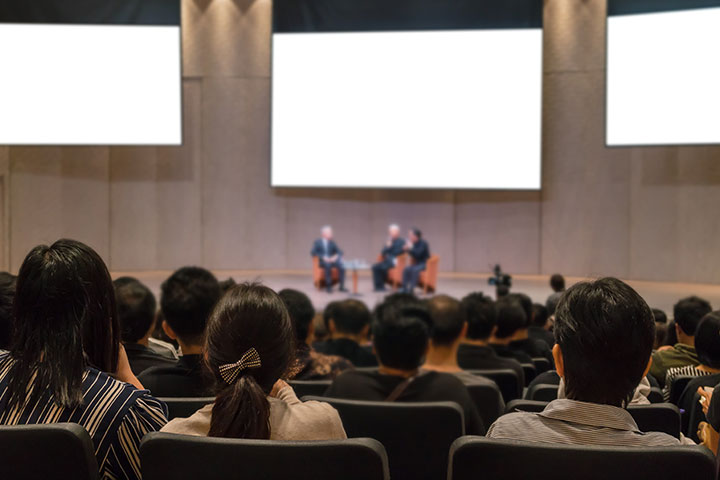For introverts, the bustling environment of an academic conference—crowds of unfamiliar faces, back-to-back sessions, and spontaneous conversations—can feel exhausting. But networking at conferences doesn’t have to mean endless small talk or forced enthusiasm. With the right approach, introverts can make meaningful connections that matter for their research and career.

Preparation is the introvert’s superpower.
Identify key people: Look at the speaker list or attendee roster. Highlight those whose work aligns with yours.
Prepare conversation starters: A few well-thought-out questions about someone’s research can help avoid awkward silences.
Plan your schedule: Choose sessions most relevant to your field, where you’ll naturally have shared interests with attendees.
Example: “I read your recent paper on AI-driven material optimization—it really connects with my work in computational modeling.”
Instead of trying to mingle with large groups:
Sit next to one or two people in sessions and introduce yourself briefly.
Join poster sessions—they’re naturally more one-on-one.
Talk to other attendees waiting in line for coffee or lunch.
Small, genuine exchanges can be more impactful than trying to “work the room.”
If you’re presenting:
Let your work be the conversation starter—people come to you.
Have a short, clear summary ready for those who stop by.
Use it as a chance to exchange contact details without awkwardness.
This approach shifts the spotlight from you to your research, which can be more comfortable.
Many conferences have hashtags or Slack/WeChat groups:
Post about sessions you’re attending or interesting insights.
Direct message someone you’d like to meet before approaching them in person.
Follow up online after meeting briefly at the event.
This helps maintain connections without requiring constant in-person interaction.
Conferences can be draining—especially for introverts.
Block time in your schedule to rest or take a quiet walk.
Don’t feel guilty for skipping a reception if you need recovery time.
Quality interactions are more valuable than sheer quantity.
After the conference:
Send short thank-you notes or emails referencing your conversation.
Share a resource or paper related to what you discussed.
This cements the connection without the need for high-energy networking.
For introverts, networking at academic conferences isn’t about becoming the most outgoing person in the room—it’s about strategic, meaningful engagement. By preparing in advance, focusing on smaller interactions, and letting your work speak for you, you can build lasting professional relationships without burning out.
If you’re looking for conferences that encourage deeper, more focused academic exchanges, platforms like iconf.org list reputable global events where genuine scholarly conversations take priority over superficial networking.